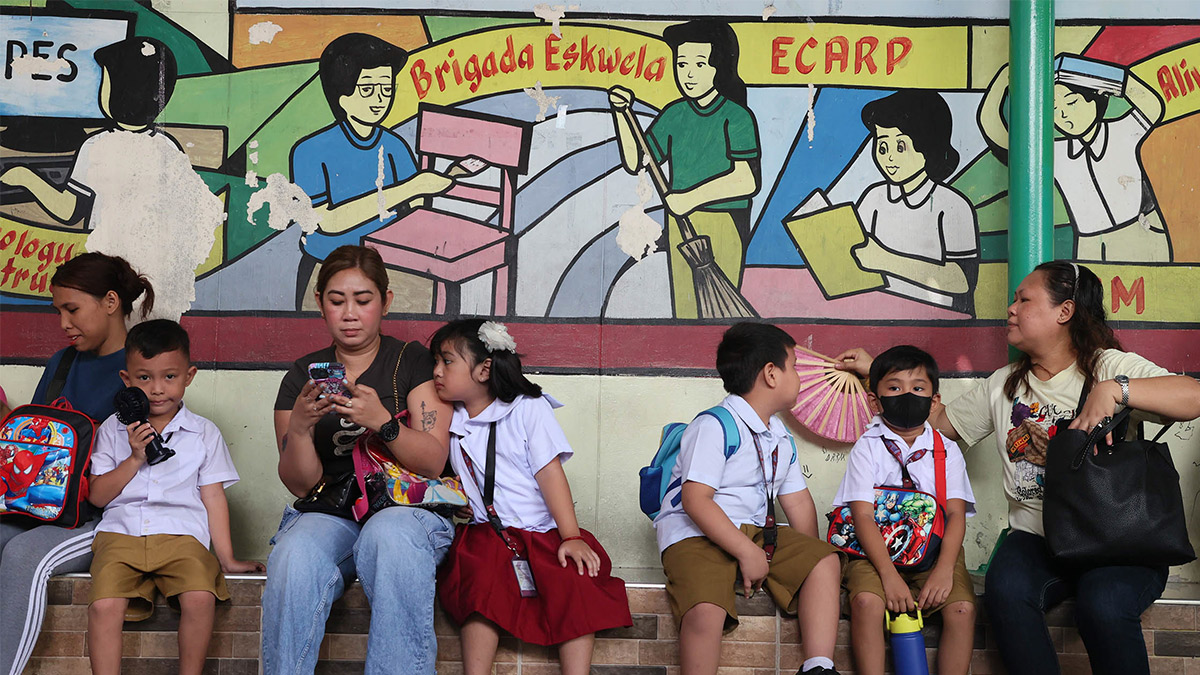
PREPARATION FOR FUTURE The government should pour money into developing children’s human capital to ensure they have the skills and capacity to become effective members of the country’s workforce, says theWorld Bank.—Marrianne Bermudez
MANILA, Philippines — The World Bank (WB) said the government must immediately boost investments in education, jobs and health to avoid ending up with an economy backed by a legion of young workers who are not productive enough to help fuel its growth.
In a report titled “The Philippines Human Capital Review” released on Monday, the WB said the country has only one generation left—or about 20 to 25 years—before the window to harness the benefits of its relatively young population closes, as it is projected to see another demographic shift after that.
For this reason, the Washington-based multilateral lender urged the Philippines to ramp up investments in developing Filipinos’ human capital—or the health, knowledge, skills and experiences that individuals accumulate throughout their lives.
READ: World Bank bullish on PH growth
Human capital is measured as the expected future earnings of the country’s entire labor force. That said, the WB explained that more investments are needed in boosting the human capital of Filipino children in their first 10 years—when social, emotional and cognitive skills are shaped and their potential to learn, earn, innovate and compete are realized.
“It’s really important to invest now so that you [will] have this younger generation going into the labor market with better capacity and better skills to be able to join the workforce in an effective manner,” WB economist Toni Joe Lebbos said.
Limited window
“It is important to stress again, that this opportunity won’t last forever. And not taking an action now could mean missing out on a lot of potential,” Lebbos added.
Latest World Bank data showed that while human capital makes up 70 percent of the Philippines’ total wealth, Filipino children born in 2020 can achieve only about half of their productive potential by the age of 18, well below their regional peers in Malaysia, Thailand, Indonesia and Vietnam.
In fact, although the Philippines remains on track to hitting upper-middle income status in the next couple of years, the WB said the country’s human capital indicators would fall short of a typical economy that belongs to that category.
Government data showed that 64 percent of the Filipino population of over 110 million belongs to the working-age group of 15 to 64 years old. It is a “demographic sweet spot” that, according to the WB, puts the Philippines among the very few countries in East Asia that can potentially become rich before its population gets old. Meanwhile, other Asian economies like China, Vietnam and Thailand are now aging fast.
Economic consequences
Ndiamé Diop, WB country director, warned that wasting the limited opportunity to invest in human capital development of a young population could have economic repercussions.
“If you don’t invest in human capital now, those kids that are getting out of school and entering the labor market will not be able to drive innovation, to drive economic growth, and then you’ll see a hump,” Diop told a press conference.
“You’ll see the growth in the longer term, not in the medium term. But let’s say in the 30s, while those kids are now in the labor market, you may see a tapering of [economic] growth,” he added.
For his part, Secretary Arsenio Balisacan of the National Economic and Development Authority said that underinvestment in human capital could hurt the country’s competitiveness and make it difficult for many young Filipinos to break free from inherited poverty.
“Once you miss that [opportunity], then productivity will be lower in the future,” Balisacan told reporters. “And poverty is often intergenerational. Can you break that transmission from poor parents to their children and their children’s children?”

